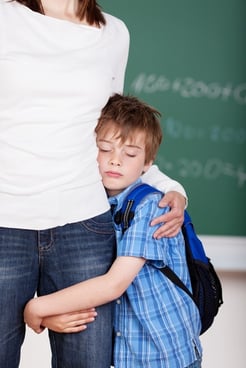3 Ways to Help Preschoolers with Separation Anxiety
If your preschooler worries when you leave her or him at a daycare or preschool, you naturally want to relieve your child’s concerns. Separation anxiety is completely normal in most instances. If you wonder how to be a better parent to a child with separation anxiety, start by thoroughly vetting the caregiver. At Kids Konnect, for example, your child’s safety and well-being are paramount. But knowing ways of dealing with separation anxiety can make the morning parting easier on everyone.
 Ritual
Ritual
The experts at PBS answer the mystery of how to be a better parent by recommending a ritual goodbye, so the child focuses on the ritual instead of the actual separation:
- A special handshake or wave
- Give a hug, share a kiss, smack a high five and then depart!
- Pack a personal photo or sentimental object in your child’s backpack
- Tuck silly or sweet love notes in the lunch box
Is It Normal?
Boston Children’s Hospital encourages parents to be certain their child’s anxiety is normal, and not a sign of separation anxiety disorder (SAD). Normal anxiety eases over a short period, rarely extending more than three weeks, and does not prevent the child from functioning normally once the parent is gone for the day.
Symptoms of SAD are markedly different from everyday separation anxiety:
- Excessive worry about harm coming to parents or loved ones
- Difficulty leaving the house, even for preschool
- Physical illness when away from parents or loved ones
Only a doctor can diagnose SAD. Treatments for SAD amplify cognitive behavioral therapy that relieves normal anxiety, such as how to be a better parent by not transferring concerns to your child, talking through feelings, and practicing shorter separations before "the big day" at preschool.
Acknowledge It
According to researchers in the Journal of Child Psychology and Psychiatry, normal separation anxiety can lead to SAD with the following risk factors:
- Maternal depression
- Maternal smoking in pregnancy
- Parental unemployment
Your child senses the ambivalence you radiate. If you have risk factors, avoid telegraphing your fears to your child. According to Rasmussen College, you can both feel better by:
- Rehearsing separation by role-playing at home
- Talking about upcoming separations
- Ensuring your child already knows a friend at preschool
At Kids Konnect we work hard to help your child overcome normal separation anxiety. What successful ways have you helped your child cope with your temporary absence? Please leave a comment below.
